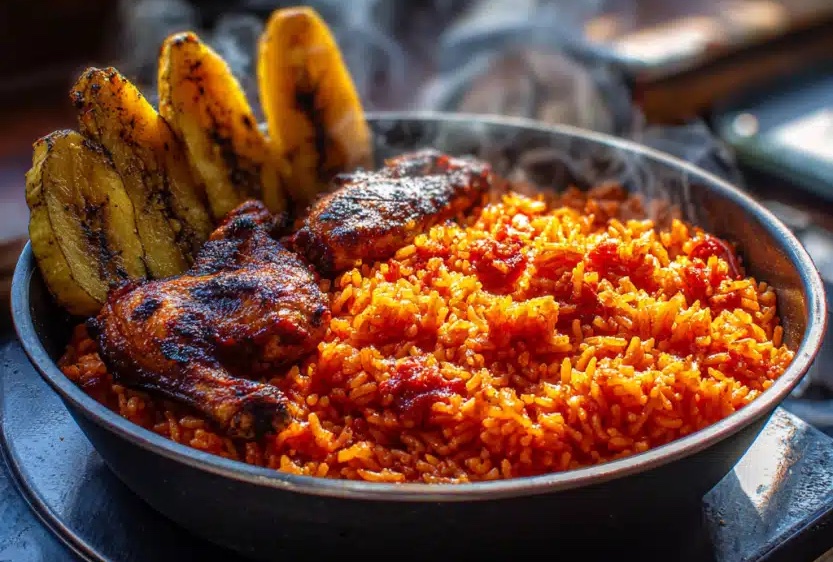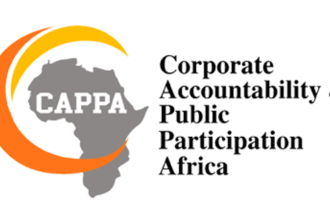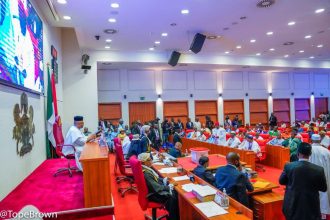The average cost of preparing a pot of jollof rice remains cheaper in Nigeria than in Ghana despite inflationary pressures in both countries, a new report by SBM Intelligence has shown.
According to the firm’s Q3 2025 Jollof Index titled “Two Economies – A Tale of Contrasts,” a Nigerian household spends about N26,656 on a pot of jollof rice, compared to GH¢430.75 in Ghana.
But SBM warned that, relative to income, the burden is heavier on Nigerian households whose purchasing power has been eroded by inflation and stagnant wages.
Covering major food markets across both countries, the report uses the cost of core jollof ingredients—rice, tomatoes, onions, pepper, seasoning, protein (chicken, beef, or turkey), and vegetable oil to track food affordability and household welfare.
Modest price decline hides deeper strain in Nigeria
In Nigeria, the National Average Jollof Index recorded a marginal decline of 3.17 per cent in the third quarter of 2025, falling from N27,528 in June to N26,656 by September. The movement was far from steady: prices climbed slightly in July to N27,836, stabilised in August, and dropped sharply only in September.
SBM said the moderation “was non-linear and fragile,” driven largely by seasonal harvest arrivals and localised price corrections rather than durable economic improvement.
The firm linked the temporary easing to government interventions such as import duty waivers on key food items and a relatively stable naira, which lowered the cost of imported inputs. It added that the price movement aligned with official statistics reporting a gradual reduction in food inflation from 22.7 per cent in July to approximately 18 per cent by September.
But SBM described the relief as technical, not structural. It pointed to the rebasing of the Consumer Price Index (CPI), which reset the reference year from 2009 to 2024, reducing the reported food inflation rate without altering actual price realities.
“While statistically accurate, the new measure compares against an already hyper-inflated 2024 baseline,” the report said. “It does not represent genuine price relief for consumers.”
Despite the apparent decline, month-on-month inflation remained high at 3.12 per cent in July, confirming that food costs continue to pressure households.
SBM observed that Nigeria’s food economy “was shaped by a complex interplay of statistical adjustments and unyielding structural challenges,” creating a technical moderation that masked acute household pain.
Structural weaknesses and insecurity persist.
The report said Nigeria’s food market remains fragmented, with regional insecurity, poor logistics, and transport bottlenecks continuing to drive up costs. These inefficiencies impose what is called a 20–30 per cent “risk premium” on food movement, especially in northern trade corridors.
The firm warned that relying on lower year-on-year inflation figures “risks creating a policy credibility gap,” diverting attention from the deep structural problems keeping food prices high.
SBM classified Nigeria’s situation as “a widening affordability crisis,” noting that about 30.6 million Nigerians are now at risk of acute food insecurity.
“Official narratives of easing food price inflation must be viewed with profound caution,” it said. “For low-income consumers, price relief remains largely theoretical when the absolute cost of staples stays high.”
The firm recommended that the government urgently dismantle informal taxation networks, checkpoints, and escort systems along food routes, which it described as “the most immediate sources of non-transparent and non-linear inflationary pressure.”
It added that ensuring security in food-producing areas should be treated not as a discretionary expenditure but as foundational economic infrastructure essential to national stability.
Ghana: Discipline pays off, but gaps remain
Ghana’s food economy fared better during the quarter, showing the benefits of coherent fiscal and monetary management, the report said.
The country’s National Average Jollof Index rose marginally by 2.56 per cent, from GH¢420 in June to GH¢430.75 in September, even as overall inflation fell to 9.4 per cent—the lowest since 2021.
SBM attributed the improvement to tight fiscal and monetary policies and an appreciating cedi, which strengthened by about 15 per cent against the dollar in 2025. The stronger currency reduced the cost of imported food and inputs, easing pressure on urban markets and the manufacturing sector.
A major policy test came in August 2025, when the Ghana Road Transport Coordinating Council proposed a 20 per cent hike in transport fares, SBM noted. Given that logistics costs are a primary driver of food prices, the increase would have triggered an immediate price surge. The government’s swift suspension of the fare hike, following consultations, helped avert what SBM called “a potentially severe, policy-induced inflation spiral.”
Still, the report said Ghana’s progress remains uneven. While the coastal and urban areas benefited from the cedi’s appreciation and strong fiscal discipline, the northern hinterland continues to suffer from high inflation and poor infrastructure, exposing deep structural inequalities.
“Ghana’s macroeconomic stabilisation is real but fragile,” SBM noted. “The country must now focus on addressing regional inequality and reducing import dependence.”
Policy lessons and contrasting battles
The Q3 report presents a clear contrast between two economies navigating similar pressures in different ways.
“Ghana is succeeding in macroeconomic stabilisation but must urgently fight inequality and import dependence,” SBM wrote. “Nigeria remains fundamentally constrained by the failure to secure its supply chains, ensuring that the food affordability crisis remains critical, volatile, and entrenched in institutional failures.”
For Nigeria, the firm advised that policy efforts move beyond statistical inflation management to practical interventions that improve logistics, reduce transport barriers, and strengthen food supply chains.
For Ghana, it urged continued fiscal discipline alongside targeted investment in road infrastructure to close the 20.1 per cent regional inflation gap and ensure that economic benefits reach inland communities.
SBM also recommended accelerating the Feed Ghana Programme (FGP) to achieve self-sufficiency in key staples such as rice, maize, and cooking oil—essential to insulating the economy from global commodity shocks.
READ ALSO: World Food Day: Stakeholders urge policy reforms to tackle hunger, food waste in Nigeria
Shared vulnerabilities
Despite the contrasting outcomes, SBM concluded that both nations remain vulnerable to climate shocks, exchange-rate swings, and structural supply constraints that keep food insecurity high across West Africa.
“Unless structural food production issues are addressed, household hunger and malnutrition will remain elevated into 2026,” the report warned.
The Jollof Index, introduced by SBM Intelligence in 2015, was designed to make food inflation more relatable to citizens and policymakers by tracking the cost of preparing a standardised pot of jollof rice for a family of five.
SBM said the data in its Q3 2025 edition was current as of 8 October, compiled from field interviews, desk research, and market polling across key geographies.
While acknowledging the short-term gains in both economies, the report reiterated that real improvement depends on sustained investment in security, logistics, and domestic production capacity.
“The challenge for policymakers,” it said, “is to ensure that statistical relief translates into real food affordability for households.”


















